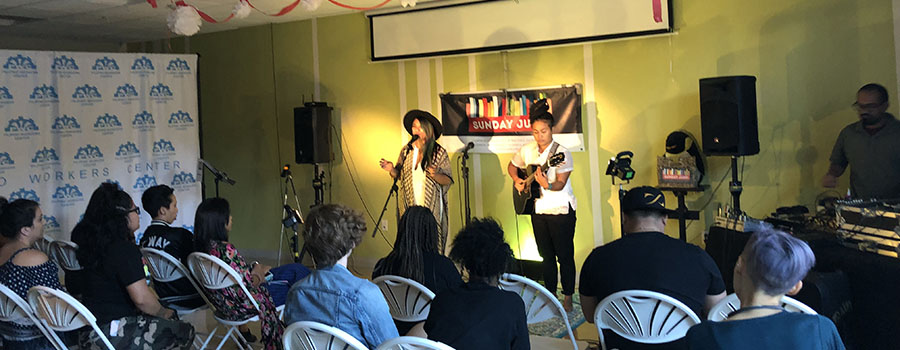
Success in the music industry is often a team effort. Even as an independent artist, you need support from those around you. This includes people who help you directly on day-to-day tasks or on certain projects, a network of industry relationships and community support.
As the saying goes, “your network is your net worth.” Your value and potential for growth are largely tied to the people you choose to surround yourself with. As emerging artists, it’s important you put yourself out there and start building these relationships.
Starting with a community-oriented mindset can potentially lead you to key allies for your music career and a support network to keep you going.
In this blog post, you’ll learn the importance of a community-oriented mindset in a music career, what exactly does it entail and how to find a community you fit in.
How can communities help me to build a successful music career?
I’ve had the chance to see first-hand through some of the artists I work with the value of being community-oriented. Although I’m not an artist myself, I know that being an independent is hard work, especially if you’re trying to tackle it alone.
A music duo I worked with recently moved out to LA, leaving a community they’ve already established themselves in, to push their music forward. However, for the first few months, they weren’t getting booked for any shows or building a stronger supporter base, mainly because they weren’t making as much of an effort to network with the communities there.
One of them decided to start attending some local open mics to get better at her songwriting and performance skills. She regularly played sets and observed other musicians. By watching several individuals repeatedly perform at different open mics – and as there is a community niche surrounding the open mic world – she was able to create conversation just by telling these performers that she had seen them before and complimented them on their work.
Those initial conversations led the duo to eventually become a part of the support team for one specific open mic called “Sunday Jump”. Fostering relationships within this community eventually led her group to start getting booked as features in other events and open mics. They were able to go from having zero gigs to having a handful of gigs a month. All it took was the initial effort to collaborate with a community for them to move her music career forward.
For another established artist further down her career, I have seen first-hand how community and networking opened so many doors for her. It ranged from corporate gigs with Google and Facebook to performing for TED and those incarcerated at San Quentin Prison.
It should go without saying that a community and networking relationships aren’t enough to take you far on its own. You still need to build your brand, put out good content and be musically skilled. But having a community in mind early on can serve as a supportive environment to help develop you as an artist.
What is a community-oriented mindset?
Adopting a community-oriented mindset is one of the best ways to get your career on the right path. To better understand what a community-oriented mindset is, we should define what a community is first.
A community, by definition, is a feeling of fellowship with others as a result of sharing common attitudes, interests, and goals. A community helps to nurture our sense of belonging.
When you are able to expand the number of people you surround yourself with, you also expand potential work opportunities, access to resources (physical and educational) and network connections to spaces outside of your own personal bubble.
What does having a community-oriented mindset mean then? It simply means you actively seek like-minded, goal-driven people to build a network of mutually beneficial relationships. You understand the importance of collaborating with others, especially in specific groups/communities that you feel you belong to.
Another way of describing this mindset is what we commonly know as “networking.” I feel networking can have a negative connotation, which is why I prefer to reframe it around the concept of community. At the end of the day, it’s about building a network of authentic relationships with people who have the potential to affect your life/career positively and vice versa.
It’s no secret that music is a tough industry to thrive in. Having a community and professional network can serve as your own personal street team that would promote your new projects and advocate for you when opportunities arise. They can also serve as an emotional support system to push you through rough times.
Now I’ll go over 3 components of a community-oriented mindset.
Please Note: Although I talk about community in a more literal, broader sense in this blog, a community-oriented mindset applies to how we approach individual relationships as well and not just for groups.
1. What do you have to offer?
You need to start with a self-assessment. With where you’re at in your life and career, what do you have to offer that would provide value to a community?
For an established artist, they have brand recognition, a sizable following and a catalog of good music. If these are things you don’t have, you’re going to have to figure out how to build up your value and reputation.
Building value often starts with serving others first. In other words, you should prioritize the community, rather than serve your own personal interests. When talking about potential collaborators, this means being an actual fan and supporter before thinking about what you’re trying to gain.
There are several ways to provide value to a community. For example, your value to a community can be your time, like volunteering. Once you’ve built up good relationships, then maybe find ways to offer your musical talents. There may be a local organization doing a fundraiser that needs musicians so you start off by performing for free.
You could even integrate yourself into a community that you are already a part of by providing musical support. You often hear a lot of famous musicians getting started singing or playing music in churches growing up. If you are part of this type of community, maybe try joining the choir or band if your church has them.
Perhaps adding value to a community may be more abstract than directly integrating yourself within a musical environment. Sometimes the message in the music you create can provide value to a community as it helps to further their agenda. If you’re a musician who writes about social justice, then social justice communities and organizations are going to find a mutual interest in what you do.
If you try to add value to the communities that you would like to participate in, then you will create a mutually beneficial relationship with your networks.
2. Give to the community first (it’s not all about you)
You found a community or network you’d like to be a part of. Next, it’s very important to understand that being community-oriented means you’re not just there to serve yourself and promote your music. Having this mindset isn’t a business tactic or shortcut. Think of it as a long term career investment.
It’s a common mistake musicians have where they are just thinking about themselves. If you come in pushing your music and trying to get followers, it can come off as disingenuous. You need to be a supporter and contributor first to build trust and respect within a community.
You also have to keep your expectations in check. Your action and contributions should be in the interest of building authentic relationships to help both sides grow and benefit.
Look to collaborate with your community members and fellow artists. This will not only help you build relationships with other like-minded people, but it will help to establish yourself within your chosen community. I will talk more about collaboration next.
3. Focus on collaboration rather than competition
The fact is we live in a highly competitive world. For artists and musicians, you’re fighting for attention against so many other people, not just in the world of music.
However, you may come across other artists in your community or city who have similarities to you – the same audience or target market. It can be intimidating if they’re more established or further in their career than you.
There’s no denying that healthy competition amongst peers can have its benefits to push and motivate you. But these other artists should not be viewed as your competition. Instead, look at them as possible allies to collaborate and connect with.
They may not think the same way and choose to think of you as competition. Don’t feed into it! The idea of a community-oriented mindset is about finding common ground with your “competitors” as a way of serving the same community or common goal.
If you are able to switch the competitive mindset into a collaborative mindset, you also have the potential to make a creative outcome exponentially more powerful than being on your own. There is also potential to expand access to those things mentioned before, like resources, cross-promotion, knowledge and more.
Now, I say “potentially” because the other person has to also be open to collaborating as well. Just like with a community, it comes down to what you can offer that can be of value for both sides. This often starts with you being a genuine fan first. Being transparent that you are both there to help one another expand is the healthiest way to ensure a collaboration that benefits both sides.
At the end of the day, collaboration is what brings a community together and allows it to flourish. Bringing that energy with you in this setting ensures that everyone wins.
Tips for Finding Your Community
Now that you have the right mindset, it’s time to find communities that you can belong in. You can find a community based around anything! There are many communities that are dedicated to singer-songwriters, specific genres, lifestyle choices, goals to understand the music industry, LGBT+ supportive spaces, social movements, and eco-friendly practices. It would help too if this community is tied to your target audience or niche.
Think about what community you want to be a part of based on your geography, what you stand for as a brand, your goals, and what makes sense for the type of music you do.
Keep in mind that a community can be online or offline (real life). It could be an online forum, a local music organization in your city or an artist collective.
To be clear, an audience or fan base is NOT a community. It can be if organized and activated a certain way, but in general, your community is often made up of goal-driven people like yourself or other artistic peers.
Online
Use Instagram Hashtags: Find people to engage with by exploring hashtags that are relevant to the community you are looking for. Use these tags in your posts too.
Twitter Advanced Search: You can search tweets and find people talking about certain topics or interests within a certain geographical location. This could be a good way to find relevant communities and people to connect with.
Follow artists you like (Established and Locals): You should already be doing this, but local artists you like may already be connected to certain communities you may want to be a part of.
Online forums and communities: A simple Google search with the type of community you are looking for.
Reddit: Reddit is a big online community with tons of sub-communities (subreddits) of almost anything you can imagine.
Facebook Groups: Facebook Groups is another way to find relevant online communities. The more often you interact within these spaces, the more the people within it will start to recognize your name. It can be a good step to perhaps eventually meeting them in person, or them connecting you to bigger opportunities surrounding your common community interests.
Offline
Local Music / Art Collectives: This is a perfect space to connect with people who are already in the creative mindset. The love of music and art is a great primer for conversation. Do a quick Google search of your city to find nearby collectives to start building with.
Make friends with other local artists: Networking also means hanging out with other people like normal human beings. Go and get coffee together. Work on music. Go hiking together. When you can make a connection feel fun, easy, and stress-free, there is a higher chance that the relationship will get stronger. Then your access to more opportunities comes with that stronger relationship.
Open Mics: Performance is a huge element of music. People at open mics are often all beginners at connecting and sharing their art in front of people. This is a perfect space to practice your ability to connect, communicate and collaborate. Doing something as small as attending an open mic and making an effort to complement participants is a great initial step. There, you can learn how to interact and connect on similar interests and values through conversation. The more genuine the comments, the more genuine the connection and potential for long-term supportive relationships.
Find Music Venues: Check online and in local magazines to find who gets booked at what venues. You can also take it a step beyond by talking to the organizers of venues, expressing your thoughts about the community space/event, as well as thanking them for fostering a space for the community to gather around it.
Causes / Nonprofits: Are you passionate about giving back? Communities that surround a philanthropic cause often are in need of entertainment, and creative initiatives bring more interest to their cause. If it’s something you resonate with, it’s a perfect opportunity to grow with their community.
Ask your friends: Don’t forget to tap into your own network of friends. There’s a chance that one of your friends may be involved in communities that you want to be a part of so ask for an introduction. If you aren’t able to find a community that already exists around your specific interest, you can definitely create a community around it.
Conclusion
Developing your career with a community and network can help push your music career much further along than doing it by yourself. The benefits of being community-oriented can lead to:
- More gigs and opportunities
- Collaborations with like-minded musicians
- Expansion of your professional network
- Potential team members to help your career directly
- Access to resources and knowledge you didn’t have before
- A support group when times get rough
- Serve a community or cause you care about
- A community of new friends/fans who advocate for you every step of the way
Like I said previously, the community approach has been beneficial to many musicians that I have worked with. Even as a music marketer, finding the right community is something I prioritize in my own career.
In 2018, when I volunteered for an annual hip hop education conference in the bay area, called Rock the School Bells, someone in my network of close friends introduced me to head organizers. I became a part of their leadership team, which would never have happened if I wasn’t part of a music community.
It may seem like an obvious approach for many of us, but I’m sure there are plenty of people out there who think they can do this alone without much help from others. It’s not impossible, but I think you’re at a big disadvantage with those who know how to leverage the power of the community.
In my opinion, building a network and growing with a community are two under-looked components for aspiring artists who want to make music a full-time career. Hopefully, this blog post has helped bring clarity to why a community-oriented mindset is needed.



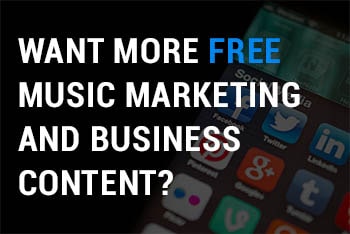
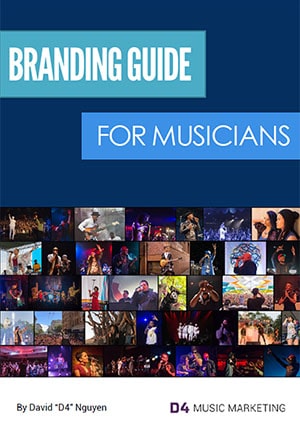
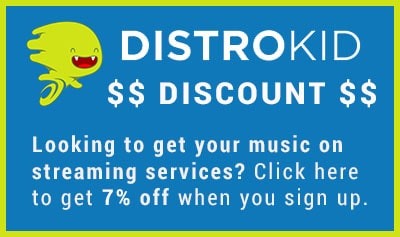
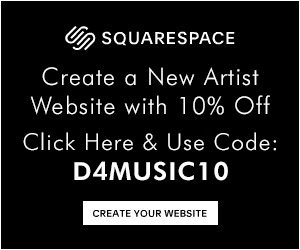

I’ve learned so much valuable information blessings